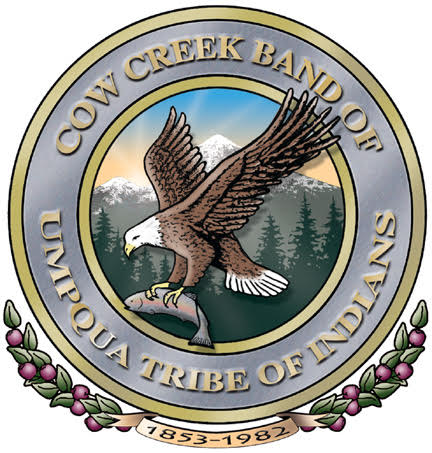Member Spotlight – Cow Creek Umpqua Indian Foundation
 We are hearing from a lot of our members about how they are changing their giving in response to COVID-19. Stories inspire and we want to share some of them with you. Each week, we will introduce you to a member of GOSW who has responded to COVID-19 and what that looks like through sharing. This week, Carma Mornarich, Executive Director of Cow Creek Umpqua Indian Foundation answers a few questions about how things have evolved in the midst of this crisis.
We are hearing from a lot of our members about how they are changing their giving in response to COVID-19. Stories inspire and we want to share some of them with you. Each week, we will introduce you to a member of GOSW who has responded to COVID-19 and what that looks like through sharing. This week, Carma Mornarich, Executive Director of Cow Creek Umpqua Indian Foundation answers a few questions about how things have evolved in the midst of this crisis.
Before COVID-19, what were your priorities as a foundation/funder?
To help nonprofit organizations meet the needs in each of their communities. The priorities of the Cow Creek Umpqua Indian Foundation have always focused on basic needs, abuse prevention, education, health and wellness and community support.
In brief, how has your foundation been able to respond to COVID-19 (for example, changed guidelines, relaxed requirements, etc.)?
We have been very flexible in allowing current grantees and applicants to modify fund requests to meet their current needs. The Cow Creek Umpqua Indian Foundation normally supports operating expenses, so that request is easily folded into assisting non-profit organizations in meeting their needs.
Have you changed the process of how you give and, if so, how have you changed it?
The spring grant deadline had just passed when the Stay Home Stay Healthy guidelines were established. The CCUIF has allowed current applicants to modify their request if necessary, the review process is happening via email, conference call and ZOOM meetings. The Board meeting will likely happen via ZOOM and our usual gathering at Seven Feathers to award grant checks will likely be cancelled. For the first time in 22 years, we will MAIL out all of our checks.
In what ways, if any, have you partnered with other funders (for example, contributed to pooled funds, worked with government agencies, collaborated with planning, matching specific funds, etc.)?
Fortunately, many other funders have a corpus and income stream, which allows them to respond during this crisis. Because of the COVID guidelines, our income stream, which is Seven Feathers Casino and Resort had to shut its doors in March. We have been unable to partner with other funders in order to keep our spring grant cycle intact. But the fate of our fall grant cycle hangs in limbo. Even if Seven Feathers reopens in the coming months, business will likely be slow due to the possibility of people limiting their outings and continued concerns about social distancing requirements until a vaccine is discovered/approved.
Are there any situations/stories that you find nonprofits are facing that really resonated with you (either challenges or inspirational) that you feel capture what they are going through or how they are responding?
During the first week of COVID restrictions a current applicant, Talent Maker City, asked if we would be willing to purchase a couple of 3D printers to help with their production of personal protective equipment in a collaboration with Asante Regional Medical Center in the Rogue Valley of Southern Oregon. A check was processed immediately. The 3D printers allowed TMC to produce twice (former production was 12 per day) the number of face shield brackets as well as prototype inline HEPA filters and six-port ventilator adapters that allow a single ventilator to serve up to six patients.
This ingenious approach to producing PPE and medical equipment protects healthcare workers and expands capacity for the health and safety of people in Southern Oregon. Their work represents real progress in the battle against COVID-19.
If there was one learning or realization that you would like to tell other funders, what would that be?
This crisis is affecting all people in Oregon. If you are a statewide funder, don’t forget the very real needs in rural Oregon.
